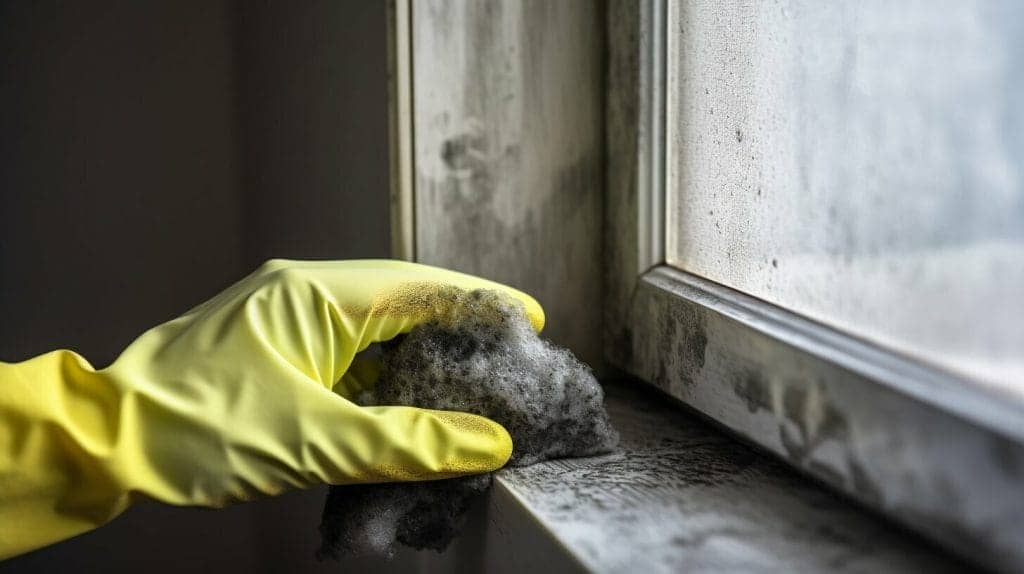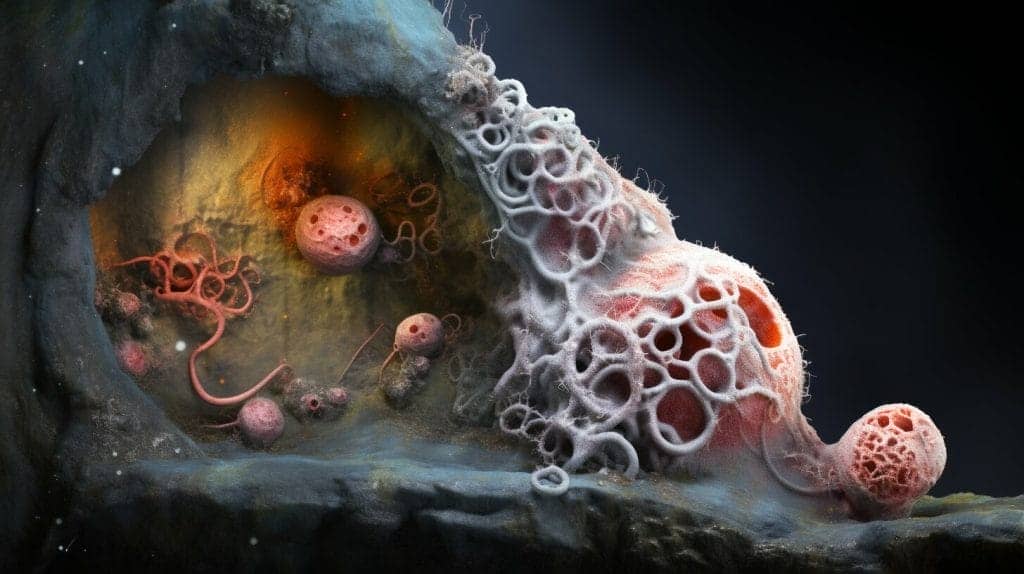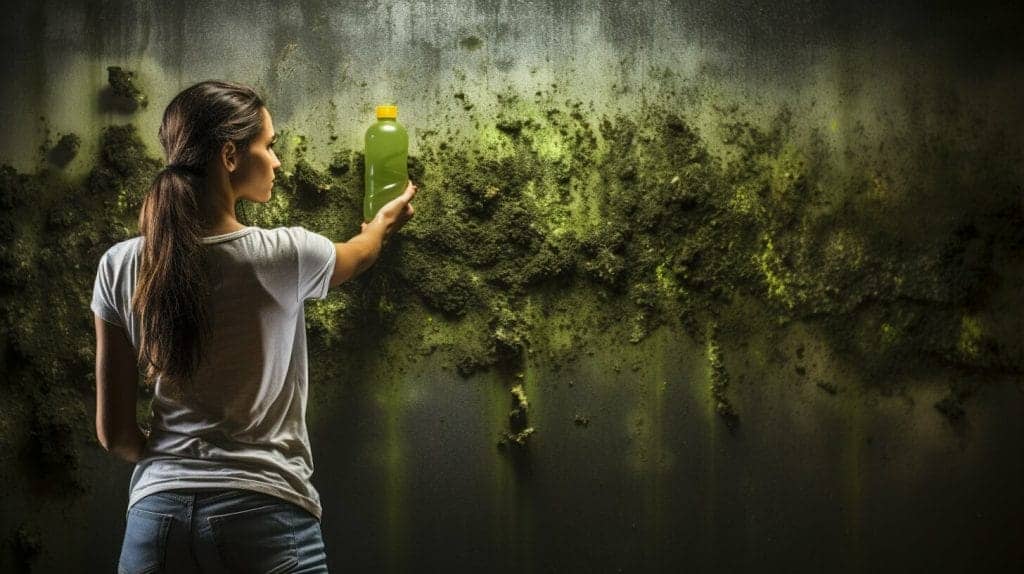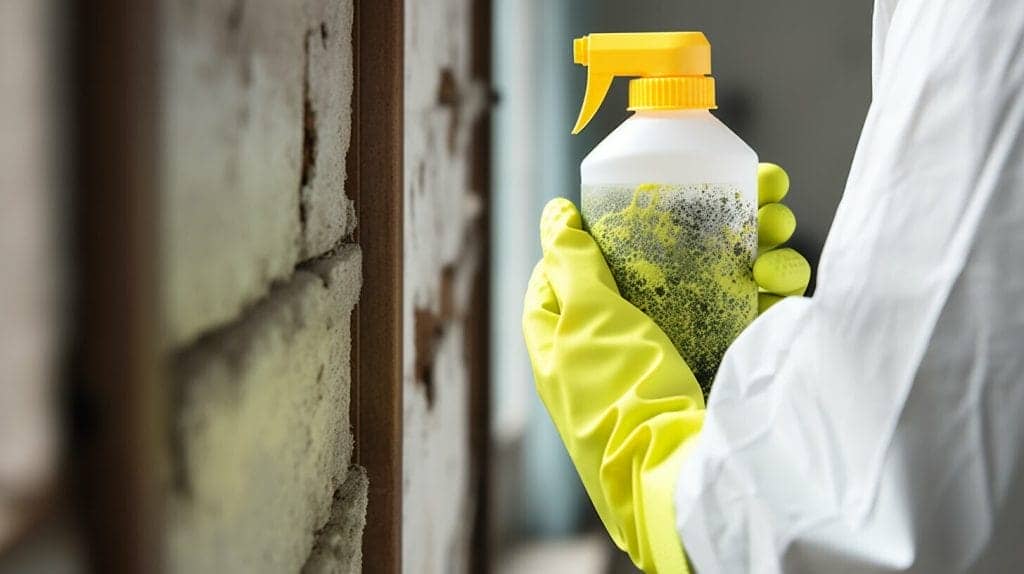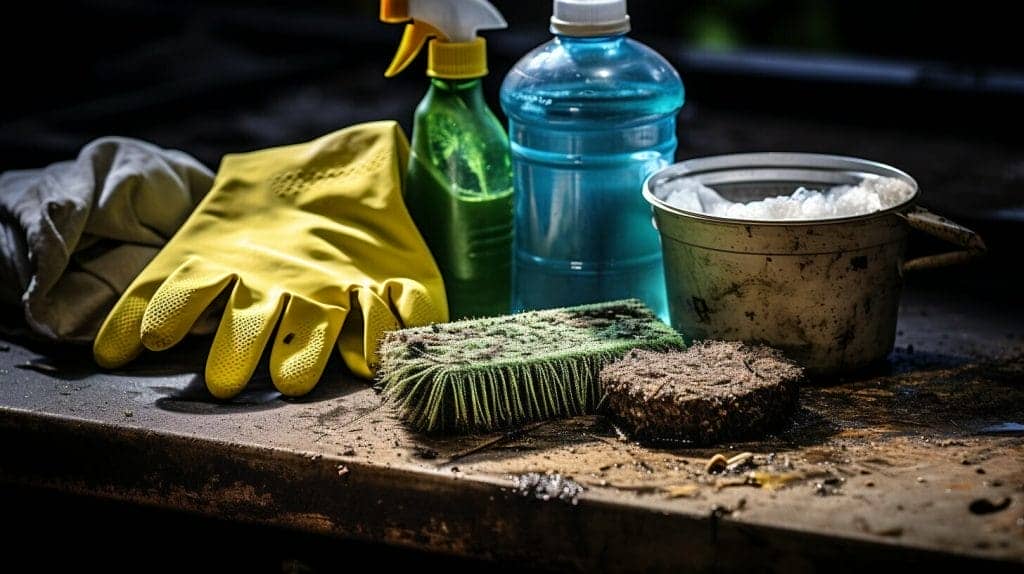Welcome to our latest article exploring the potential link between toxic mold exposure and depression. While often overlooked, the effects of mold on our physical health are well documented. However, recent research has suggested that it may also have a significant impact on our mental health, particularly our risk of developing depression.
In this section, we’ll take a closer look at what toxic mold is, how it can affect the human body, and the potential link between mold exposure and depression. Whether you’re concerned about the impact of mold on your own mental health, or simply looking to better understand this emerging area of research, we hope to provide you with the information you need to make informed decisions.
What is Toxic Mold?
Toxic mold, also known as black mold or Stachybotrys chartarum, is a type of mold that produces mycotoxins. These toxins can have harmful effects on human health, particularly when exposure is prolonged or in high concentrations. Toxic mold can be found in damp or water-damaged buildings, including homes, offices, and schools.
People can be exposed to toxic mold through inhalation, ingestion, or skin contact. Mold spores can become airborne and spread throughout a building, particularly when disturbed during cleaning or renovation. Mold can also grow on food, especially fruits and vegetables.
Types of Toxic Mold
There are several types of toxic mold, but Stachybotrys chartarum is one of the most well-known. It is a greenish-black mold that grows on materials that are high in cellulose, such as wood, paper, and drywall. Other types of toxic mold include Aspergillus, Penicillium, and Cladosporium.
Health Risks of Mold Exposure
Exposure to toxic mold can cause a range of health problems, particularly in individuals who are sensitive or allergic to mold. Common symptoms of mold exposure include:
- Coughing and wheezing
- Shortness of breath
- Nasal congestion and sinusitis
- Headaches
- Fatigue and weakness
- Eye irritation and redness
- Skin rash
Long-term exposure to toxic mold can lead to more serious health problems, such as respiratory infections, neurological disorders, and even cancer in rare cases.
In the next section, we will take a closer look at the dangers of toxic mold exposure and its impact on human health.
The Dangers of Toxic Mold Exposure
Exposure to toxic mold can have serious consequences for your health. While mold spores are found in the air we breathe every day, large amounts of mold in indoor environments can lead to a range of health problems, including respiratory issues, neurological symptoms, and even depression.
When mold spores are inhaled, they can cause inflammation in the respiratory system, leading to symptoms like coughing, wheezing, and difficulty breathing. This can be especially dangerous for individuals with preexisting respiratory conditions, like asthma or allergies.
But the dangers of toxic mold exposure go beyond just the respiratory system. Mold toxins can also impact the nervous system, leading to symptoms like headaches, fatigue, and difficulty concentrating. This can be especially concerning for individuals who are already struggling with mental health issues.
Some research has also suggested that there may be a link between toxic mold exposure and depression. Mold toxins can impact neurotransmitter activity in the brain, leading to changes in mood and behavior. Additionally, the stress and anxiety associated with mold exposure can also contribute to feelings of depression.
If you suspect that you have been exposed to toxic mold, it is important to seek medical attention right away. Your doctor can help you to identify potential symptoms and develop a treatment plan that is appropriate for your specific situation. Additionally, taking steps to prevent mold growth in the first place can help to protect your health and wellbeing.
The Connection between Toxic Mold and Depression
While the link between mold exposure and physical health problems is well-established, research on the relationship between mold and mental health is still in its early stages. However, some studies suggest that exposure to toxic mold can indeed contribute to symptoms of depression.
A study published in the Journal of Environmental Health in 2017 found that individuals living in mold-contaminated homes were more likely to experience symptoms of depression and anxiety than those living in homes without mold. Another study, published in the Journal of Occupational and Environmental Medicine, found that mold exposure may increase the risk of developing depression and bipolar disorder.
The Impact of Mold Toxins on the Brain
One theory behind the link between toxic mold and depression involves the impact of mold toxins on the brain. According to the National Institute of Environmental Health Sciences, some types of mold produce toxins called mycotoxins that can affect neurotransmitter activity in the brain. This can lead to changes in mood and behavior, including feelings of sadness and hopelessness.
Additionally, mold-related stress and anxiety can contribute to depressive symptoms. Living in a mold-contaminated environment can be incredibly stressful, especially if you are concerned about the impact of mold on your health. This chronic stress can take a toll on mental health over time, increasing the risk of depression.
Effects of Toxic Mold on Mood
Exposure to toxic mold can have a range of effects on mood and behavior. Mold toxins have been found to impact neurotransmitter activity in the brain, leading to changes in mood and behavior.
In some cases, mold exposure can contribute to the development of depression. Studies have shown that individuals who are exposed to mold are more likely to experience symptoms of depression, such as low mood, feelings of worthlessness, and loss of interest in activities they once enjoyed.
Other common symptoms of mold-related depression may include anxiety, irritability, and difficulty concentrating. These symptoms can be further compounded by the stress and uncertainty that often accompanies mold exposure.
It is important to note that not everyone who is exposed to toxic mold will experience negative effects on mood and behavior. Some individuals may be more susceptible to the effects of mold exposure due to factors such as genetics or pre-existing health conditions.
If you suspect that your mood changes may be related to mold exposure, it is important to speak with a healthcare professional for guidance on how to manage your symptoms and seek treatment if necessary.
The Connection between Toxic Mold and Depression
Research has shown that exposure to toxic mold can have a negative impact on mental health, particularly depression. Mold toxins can impact the brain and lead to changes in mood and behavior. Additionally, mold-related stress and anxiety can contribute to feelings of depression.
Mold Toxins and Neurotransmitters
Mold toxins can impact the activity of neurotransmitters in the brain, leading to changes in mood and behavior. Neurotransmitters are chemicals that transmit signals between nerve cells, and imbalances in these chemicals can lead to mood disorders like depression. Mold toxins can interfere with the production and function of neurotransmitters like serotonin and dopamine, both of which play a role in regulating mood and behavior.
Mold-Related Stress and Anxiety
In addition to the direct impact of mold toxins on neurotransmitters, mold exposure can also cause stress and anxiety. When individuals are exposed to mold, they may experience physical symptoms like coughing, sneezing, and difficulty breathing, as well as mental symptoms like fear and worry about the health impacts of exposure. This stress and anxiety can contribute to feelings of depression.
Overall, the connection between toxic mold and depression is complex and multifaceted. While more research is needed to fully understand the link, it is important for individuals who have been exposed to toxic mold and are experiencing symptoms of depression to seek professional help.
Identifying and Treating Toxic Mold Exposure
If you suspect that you may be experiencing symptoms of toxic mold exposure, it is important to take action as soon as possible. Here are some tips for identifying and treating mold exposure:
Identifying Toxic Mold
Some common signs of mold exposure include:
- Coughing, sneezing, and other respiratory symptoms
- Headaches
- Fatigue or weakness
- Irritation of the eyes, nose, or throat
- Difficulty concentrating
- Memory problems
If you suspect that you may have mold in your home or workplace, it is important to test for it. You can purchase mold testing kits online or hire a professional to test for mold.
Treating Mold Exposure
If you have been exposed to toxic mold, there are several steps you can take to help alleviate symptoms:
- Remove yourself from the source of mold exposure
- Open windows and doors to improve ventilation
- Use an air purifier to help filter out mold spores
- Consider professional mold remediation services for severe cases of mold exposure
It is also important to seek medical attention if you are experiencing symptoms of mold exposure.
If you are unsure about the severity of your exposure or are experiencing persistent symptoms, it is important to speak with a medical professional for guidance.
Prevention is Key
While it’s important to know the potential risks associated with toxic mold exposure and depression, the best approach is to prevent exposure altogether. By taking the following steps, you can reduce your risk of mold exposure:
- Keep indoor humidity levels below 60%
- Use air conditioning or a dehumidifier during humid months
- Fix any leaks or water damage promptly
- Clean and dry any areas affected by water damage within 24-48 hours
- Use exhaust fans in bathrooms and kitchens
- Ensure proper ventilation in crawl spaces and attics
- Regularly clean and maintain air conditioning and heating systems
If you suspect mold growth in your home or workplace, it’s important to seek professional remediation as soon as possible. Attempting to remove mold yourself can actually spread spores and make the problem worse.
The Importance of Seeking Help for Depression
If you are struggling with depression as a result of mold exposure, it is important to seek help from a mental health professional. Depression can be a serious condition that can impact every aspect of your life, from your ability to work or attend school to your relationships with loved ones.
When seeking help for depression, it is important to find a therapist or counselor who is knowledgeable about the potential impact of mold exposure on mental health. They can work with you to develop a treatment plan that addresses both your emotional and physical needs.
Some of the most common treatment options for depression include therapy, medication, and lifestyle changes. Therapy can help you identify and address the root causes of your depression, while medication can help alleviate symptoms and improve your overall mood. Lifestyle changes, such as regular exercise, a healthy diet, and stress management techniques, can also be effective in managing depression.
Remember, seeking help for depression is a sign of strength, not weakness. It may take time and effort to find the right treatment plan for you, but with the right support and guidance, it is possible to overcome depression and improve your overall well-being.
Talking to Your Doctor about Mold Exposure
If you suspect that you may be experiencing symptoms related to toxic mold exposure, it is important to talk to your doctor. Here are some tips to help you prepare for your appointment:
- Make a list of your symptoms: Before your appointment, make a list of any symptoms you have been experiencing. This can help your doctor determine if your symptoms are related to mold exposure or another condition.
- Describe your living or working conditions: Be prepared to discuss your living or working conditions with your doctor, including any recent water damage or visible signs of mold.
- Ask about testing: Your doctor may recommend testing to confirm the presence of mold toxins in your body or in your environment. Be sure to ask about any tests that may be necessary.
- Discuss treatment options: Depending on your symptoms and the severity of your exposure, your doctor may recommend a range of treatment options, such as medication, therapy, or allergy shots.
- Request a referral: If necessary, ask your doctor for a referral to a specialist who can help you manage your symptoms more effectively.
Remember, you are your own best advocate when it comes to your health. Don’t be afraid to speak up and ask questions if something doesn’t feel right. With the right care and treatment, it is possible to manage the physical and emotional effects of mold exposure.
Myths and Misconceptions About Toxic Mold
Despite the growing body of knowledge about toxic mold and its potential impact on mental health, there are still many myths and misconceptions surrounding this topic. Here are some of the most common:
| Myth | Fact |
|---|---|
| Toxic mold can cause death. | While toxic mold exposure can lead to serious health problems, including respiratory issues and neurological symptoms, it is highly unlikely to cause death in otherwise healthy individuals. |
| All mold is toxic. | While some types of mold produce toxins that can be harmful to human health, not all mold is toxic. In fact, most types of mold are relatively harmless. |
| You can’t see or smell toxic mold. | While some types of toxic mold can be difficult to detect without specialized equipment, many types of mold have a distinct musty odor and can be visible on surfaces. If you suspect that you have a mold problem in your home or workplace, it is important to take action to address it. |
| Only people with weak immune systems are at risk of mold-related illness. | While people with weaker immune systems may be more susceptible to the negative effects of mold exposure, anyone can be impacted by mold-related health problems. This includes individuals with no underlying health issues. |
It is important to rely on accurate, evidence-based information when it comes to toxic mold and its potential impact on mental health. If you have concerns about mold exposure, speak to a doctor or mental health professional who is knowledgeable about this topic. They can provide guidance and support to help you stay healthy and informed.
FAQ: Your Top Questions Answered
Now that we’ve explored the link between toxic mold exposure and depression, you may have some questions about how this impacts your health and wellbeing. Here are some of the most frequently asked questions about mold exposure and mental health:
Can mold exposure cause depression?
Yes, exposure to toxic mold has been linked to changes in mood and behavior, including symptoms of depression.
What are some specific depressive symptoms that can be linked to mold exposure?
Some specific depressive symptoms that have been linked to mold exposure include low mood, feelings of hopelessness, and loss of interest in activities that were once enjoyable.
Can mold spores impact my emotional wellbeing?
While research is still ongoing, it is possible that exposure to mold spores could impact emotional wellbeing. Mold exposure has been associated with changes in mood and behavior, as well as physical symptoms like allergies and respiratory issues.
What should I do if I think I’ve been exposed to toxic mold?
If you suspect that you have been exposed to toxic mold, it’s important to seek medical attention and have your home or workplace inspected for mold. Your doctor may recommend testing for mold toxins and/or refer you to a specialist for treatment.
What are some steps I can take to prevent mold exposure?
Some steps you can take to prevent mold exposure include maintaining proper ventilation in your home, controlling moisture levels, and regularly cleaning and maintaining your living spaces. It’s also important to address any leaks or water damage promptly.
How can I talk to my doctor about my concerns related to mold exposure?
When talking to your doctor about your concerns related to mold exposure, it can be helpful to come prepared with specific questions and information about your symptoms. Be sure to share any relevant details about your home or workplace, and advocate for your own health and wellbeing.
Where can I find additional resources and support?
If you’re looking for additional resources and support related to mold exposure and mental health, there are a number of organizations and online communities that may be helpful. Some options include the National Alliance on Mental Illness (NAMI) and the Environmental Health Center-Dallas.
Dr. Francisco Contreras, MD is a renowned integrative medical physician with over 20 years of dedicated experience in the field of integrative medicine. As the Medical Director of the Oasis of Hope Hospital in Tijuana, Mexico, he has pioneered innovative treatments and integrative approaches that have been recognized globally for the treatment of cancer, Lyme Disease, Mold Toxicity, and chronic disease using alternative treatment modalities. Dr. Contreras holds a medical degree from the Autonomous University of Mexico in Toluca, and speciality in surgical oncology from the University of Vienna in Austria.
Under his visionary leadership, the Oasis of Hope Hospital has emerged as a leading institution, renowned for its innovative treatments and patient-centric approach for treating cancer, Lyme Disease, Mold Toxicity, Long-Haul COVID, and chronic disease. The hospital, under Dr. Contreras's guidance, has successfully treated thousands of patients, many of whom traveled from different parts of the world, seeking the unique and compassionate care the institution offers.
Dr. Contreras has contributed to numerous research papers, articles, and medical journals, solidifying his expertise in the realm of integrative medicine. His commitment to patient care and evidence-based treatments has earned him a reputation for trustworthiness and excellence. Dr. Contreras is frequently invited to speak at international conferences and has been featured on CNN, WMAR2 News, KGUN9 News, Tyent USA, and various others for his groundbreaking work. His dedication to the medical community and his patients is unwavering, making him a leading authority in the field.
Contreras has authored and co-authored several books concerning integrative therapy, cancer, Lyme Disease and heart disease prevention and chronic illness, including "The Art Science of Undermining Cancer", "The Art & Science of Undermining Cancer: Strategies to Slow, Control, Reverse", "Look Younger, Live Longer: 10 Steps to Reverse Aging and Live a Vibrant Life", "The Coming Cancer Cure Your Guide to effective alternative, conventional and integrative therapies", "Hope Medicine & Healing", "Health in the 21st Century: Will Doctors Survive?", "Healthy Heart: An alternative guide to a healthy heart", “The Hope of Living Cancer Free”, “Hope Of Living Long And Well: 10 Steps to look younger, feel better, live longer” “Fighting Cancer 20 Different Ways”, "50 Critical Cancer Answers: Your Personal Battle Plan for Beating Cancer", "To Beat . . . Or Not to Beat?", and “Dismantling Cancer.”



